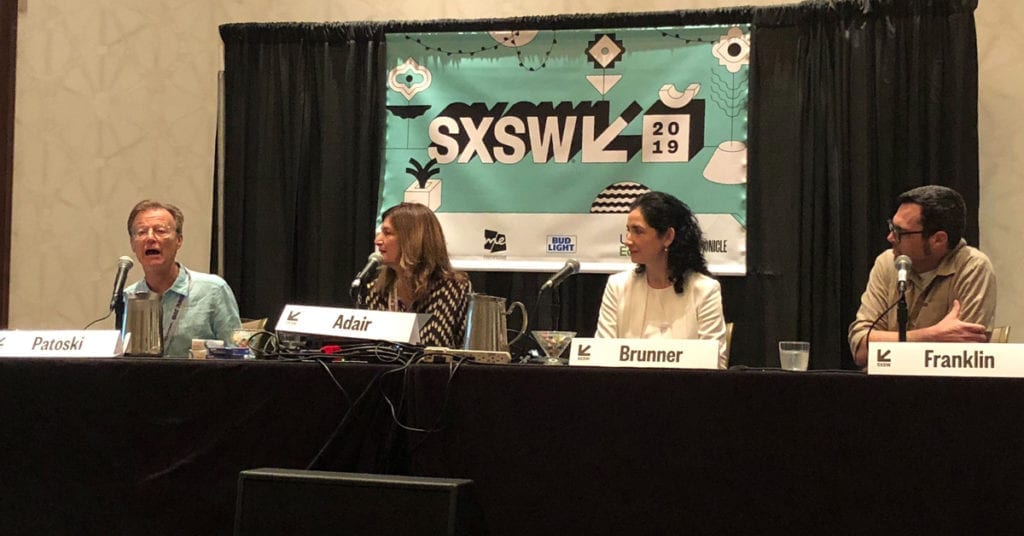
At SXSW, WP Engine CEO Heather Brunner Underscores Importance of Altruism in a Growing City
There’s no question about it, Austin is booming. Just this past week the WSJ crowned Austin, the hottest job market in the U.S. The capital city consistently ranks as one of the fastest-growing areas in the country, and as businesses large and small continue to flock here, there’s no sign this trend is going anywhere but up. A study released in 2018 by the Austin Chamber of Commerce noted startups account for a larger share of businesses in Austin than in nearly all other major U.S. metros.
But in a city growing this fast, what can be done to make sure the qualities that attract so many people remain intact? What is it that makes Austin such a special place, and what can we do to keep it that way?
This question was the overarching theme Sunday, during Who and What Makes Austin Austin?—a SXSW panel discussion moderated by writer and historian Joe Nick Patoski. WP Engine CEO Heather Brunner was among the panel’s three participants, which also included Franklin Barbecue Owner-Operator Aaron Franklin and film editor Sandra Adair, whose work includes 17 Richard Linklater films and “The Secret Life of Lance Letscher,” which she directed.
All three panelists shared stories of what brought them to Austin, and each touched on similar themes: the legendary live music scene, the charm and beauty of the nearby Texas Hill Country, and the friendly, down-to-earth vibe that so many people have found to be a fact of life here.
Keeping that energy alive, they all agreed, was a challenge the city will have to contend with, especially as more people arrive and the economy continues to grow. There was also wide agreement that the best way to preserve Austin’s special qualities was to continue fostering the welcoming spirit each panelist said greeted them when they first arrived here, and to give back to the community where they’ve all experienced success.
For Adair, that means working to grow the network of resources available to up and coming filmmakers in Austin—something she said was not widely available in years past but that was necessary if the film community was going to successfully grow. For Franklin, he said that welcoming spirit stays alive through his restaurant, where the brisket is widely considered the best there is and the daily ritual of waiting in line for barbecue has grown into a place for new friendships and even marriages.

For Heather, the inclusive, altruistic spirit of Austin is directly related to her leadership at WP Engine and the core values she’s worked hard to instill at the company—specifically “Aspiring to Lead, Committed to Give Back,” which has spurred WP Engine employees to give generously to numerous causes across Central Texas and beyond.
“Companies that are going to thrive here are those that help others and give back to the community,” she said, noting that as larger tech companies build out their presence in Austin, this will become more of a challenge.
“Businesses will have to work hard on who they are and why they exist,” she said. “While technology will change, and the companies bringing jobs here will change, what doesn’t change is community and values.”
Across the panel, there was also agreement that while philanthropy is important to many businesses in Austin, more can and should be done to benefit the city while preserving some of the things that make it great.
As Austin’s tech scene has evolved from semiconductors to startups, Heather added that new tech companies have consistently had to define their corporate identities. While some of Austin’s legacy technology businesses have jumped out as philanthropic leaders, she said that new, larger organizations making Austin their home will have an even greater opportunity to give back to the community and shape the future of the city.
“Technology will continue to evolve,” she said, “but what will keep Austin special is sticking to our values and sense of altruism.”
Start the conversation.